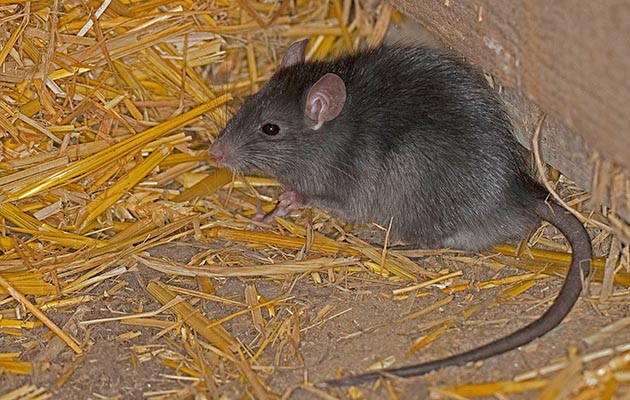Managing rats and mice at the yard: ethical considerations of dispatching rodents under the spotlight

Managing rats and mice goes hand in hand with keeping horses – but how humans ethically manage rodents has been put under the spotlight.
All equestrians will have managed “pests” at some stage, regardless of whether they have ever come into contact with a rodent. Examples include preventative measures such as feed storage and muck heap location.
But beyond prevention, there can come a time when direct action is needed to control infestations.
Questions over humans’ attitudes to “pests” and the most ethical ways to manage them, while having the least detrimental impact on their welfare, were posed at the Animal Welfare Foundation forum (11 May).
The points raised at the forum were not debating whether or not control is necessary. Rodents can carry diseases and it was pointed out that where human health and safety is concerned, the dangers should not be underestimated. Instead, the discussion focused on how we view rats and mice, and if a shift in perspective and research into management methods could improve their welfare in lethal and non-lethal removal practices.
“The language we use to describe these animals really impacts the way we think about them and then the way we treat them, often impacting their welfare,” said Liz Mullineaux, member and trustee of the Wild Animal Welfare Committee.
“What is acceptable for that wild mouse wouldn’t be an acceptable way of euthanising a pet mouse, or certainly not a lab mouse.”
The debate was timely, following less than a fortnight after a bill banning the use of glue traps for rodents in the UK was granted royal assent.
Sandra Baker, research fellow and member of the wildlife conservation research unit at the University of Oxford, presented an assessment of knock-on effects on welfare of six rat control methods.
These were: snap trapping, cage trapping followed by a blow to the head (concussive killing), glue trapping with concussive killing, anticoagulant poisoning, cholecalciferol poisoning and cellulose baiting.
The research found the three poisoning methods had the greatest welfare repercussions, with a severe-extreme impact for days, and with capture on a glue trap, which had an extreme effect on welfare lasting for hours. These were recommended only as “last resorts” from a welfare perspective. Lower influences on welfare were found with cage trapping followed by concussive killing.
Snap trapping was variabile as these are unregulated. But Dr Baker suggested that good-quality snap traps that cause rapid unconsciousness may represent the most welfare-friendly option, with further testing and regulation or a voluntary certification scheme.
She recommended preventive measures as the first point of call, adding: “It’s probably a good idea not to feed the birds too close to the house; clean up any spillages and store feed properly.”
Dr Barker also recommended checking traps frequently to minimise time live animals spend in them, as well as improved training for how to deliver a fatal blow without causing suffering.
During the debate, cats were raised as a good deterrent, while Dr Mullineaux pointed out that the welfare of rodents they encounter “would depend on the cat”.
Dr Barker added that live-catching and releasing “might make people feel better”, but there are impacts to releasing any animal into a location he was not in to start with.
Coming back to the point about differing human attitudes towards the treatment of lab and wild rodents, she said: “Why wouldn’t we treat them the same? They are all sentient animals.”
You might also be interested in:

Save time and money with a subscription to Horse & Hound

How do I control rats and mice on my stable yard? H&H’s expert advice
We ask pest control expert Michael Flatters for his top tips on controlling vermin on a stable yard
Horse & Hound magazine, out every Thursday, is packed with all the latest news and reports, as well as interviews, specials, nostalgia, vet and training advice. Find how you can enjoy the magazine delivered to your door every week, plus options to upgrade your subscription to access our online service that brings you breaking news and reports as well as other benefits.

